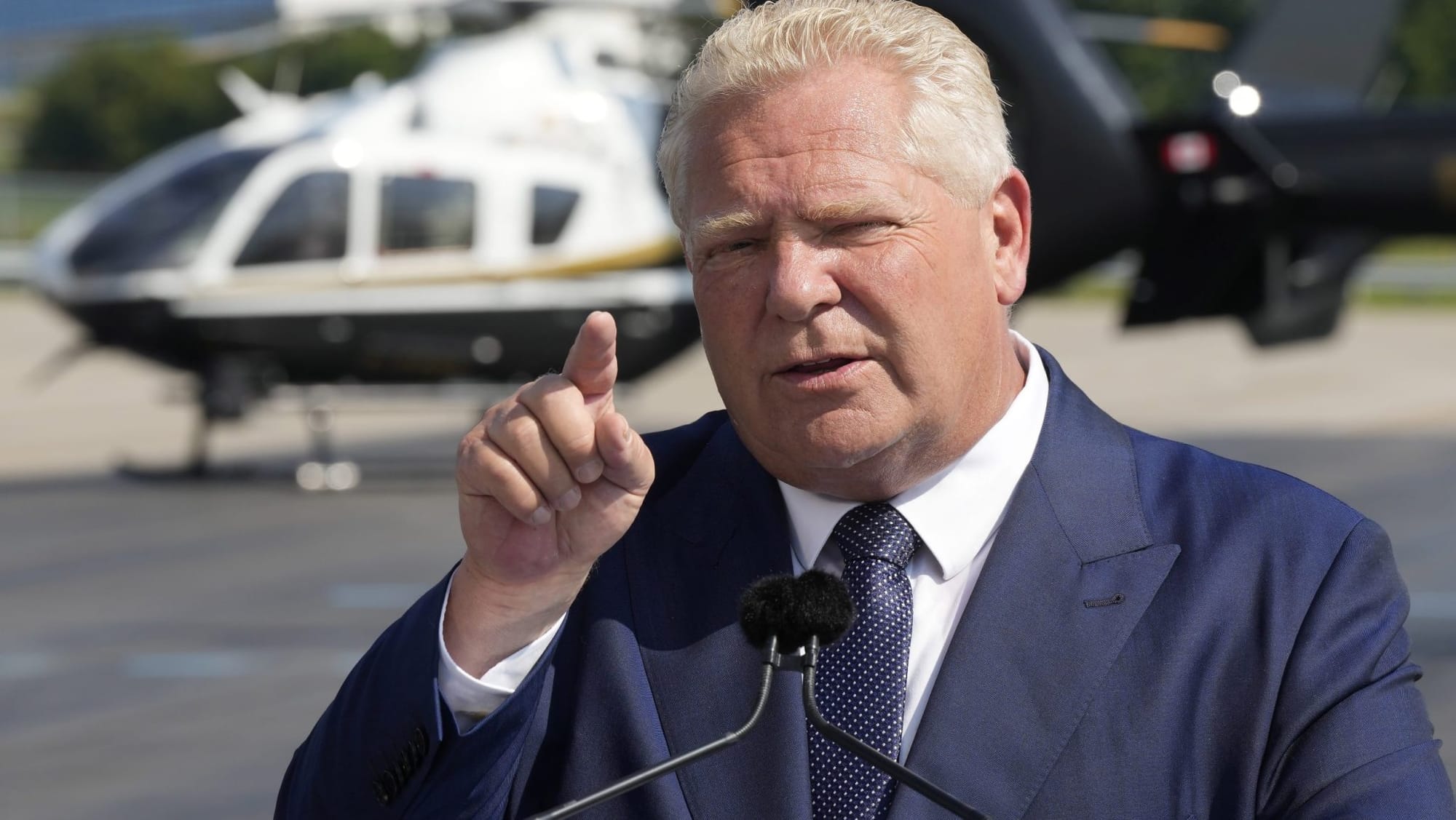‘Needs to be fair’: Premier Doug Ford criticizes Mexico over trade
He suggested that if Mexico does not comply, Canada should consider pursuing a more direct bilateral trade agreement with the United States that excludes Mexico to better protect Canadian and American industries.

Ontario Premier Doug Ford is taking a hard stance against Mexico amid rising tensions over trade, particularly with Donald Trump back in the White House. In a statement on Tuesday, Ford accused Mexico of acting as a “backdoor” for Chinese-made cars, auto parts, and other goods, which he argues is undermining the North American economy and threatening Canadian and American jobs.
Ford’s Critique of Mexico's Trade Practices
Ford's comments are a reaction to what he sees as Mexico’s failure to enforce measures that would prevent transshipment — the practice of rerouting goods through a third country to avoid higher tariffs. He urged Mexico to align its tariffs on Chinese imports with those of Canada and the United States, implying that Mexico’s leniency could be exploited by China to flood the North American market with cheaper goods.
“If Mexico won’t fight transshipment by, at the very least, matching Canadian and American tariffs on Chinese imports, they shouldn’t have a seat at the table or enjoy access to the largest economy in the world,” Ford said. He suggested that if Mexico does not comply, Canada should consider pursuing a more direct bilateral trade agreement with the United States that excludes Mexico to better protect Canadian and American industries.
A Push for a Bilateral Trade Agreement
Ford's comments also hint at the possibility of renegotiating the United States-Mexico-Canada Agreement (USMCA). With Trump’s re-election, there is heightened uncertainty around the future of this trade pact, especially given Trump's previous criticisms of the agreement. Ford’s proposal to explore a U.S.-Canada bilateral trade agreement underscores his desire to prioritize Canadian and American workers over maintaining the trilateral arrangement with Mexico.
Trump's Influence on Trade Policy
The context of Ford's remarks comes just a week after Trump’s re-election, which has sparked concerns about the stability of North American trade relationships. Trump has long criticized Mexico’s role in global supply chains and promised to impose a blanket 10% tariff on all imported goods, potentially impacting Canadian exports. Additionally, Trump’s hardline immigration policies have raised fears in Canada about a possible influx of migrants if the U.S. moves aggressively to deport undocumented individuals.
Trudeau’s Response
In contrast to Ford’s aggressive stance, Prime Minister Justin Trudeau has been more measured in his response to Trump’s re-election. Trudeau emphasized the deep integration of Canadian and American supply chains, suggesting that protectionist policies like tariffs could backfire and harm American jobs as much as Canadian ones. While Trudeau acknowledged that Canada and the U.S. have aligned interests in competing on the global stage, his approach reflects a more cautious and cooperative tone aimed at maintaining stable economic ties.
USMCA’s Future Amid Renewed Tensions
The USMCA, which replaced NAFTA in 2020, is set to come up for review soon. The agreement was initially brokered to address concerns over unfair trade practices and protect North American jobs, particularly in the automotive and agricultural sectors. However, Trump’s return to power raises the possibility of renewed demands for changes to the agreement, especially targeting Mexico’s trade policies that Trump sees as disadvantageous to American workers.
Mexico has already implemented some legal changes that could give Trump leverage in renegotiation talks. As Ford’s comments reveal, Canada is also wary of Mexico’s role in the agreement, particularly when it comes to competition with China.
What’s Next?
Ford’s aggressive push to reconsider trade dynamics suggests growing divisions within North America as leaders react to Trump's hardline policies. Whether Ford’s call for a bilateral agreement with the U.S. gains traction remains to be seen, especially given the complex interdependencies created by decades of trilateral trade under NAFTA and USMCA. However, his statements highlight a significant shift in Canada’s internal political discourse regarding trade, potentially foreshadowing a tougher stance in upcoming negotiations.
As the USMCA review approaches, all eyes will be on how Canada, the U.S., and Mexico navigate these renewed tensions in an increasingly protectionist landscape.





